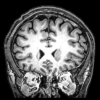I started taking several supplements for my mental health problems (depression, hallucinations, isolation) and made a topic here on it as well. I now found out that not only vitamin B9 and B12 can lower my homocysteine level (which, unfortunately, I don't know), but also NAC and omega-3, which I also take.
I now upped my dosage of l-methylfolate from 2mg to 5mg and feel more alert. I'll now stick with the higher dosage. I take 5mg of B12 on a weekly basis.
I was really surprised to see how many diseases actually correlate with high homocysteine levels. It almost seems like every disease out there correlates with high homocysteine?
http://www.lef.org/p...eduction_01.htm
vascular damage, congestive heart failure, migraines, macular degeneration, hearing loss, alzheimer's
http://evolutionaryp...s-elevated.html
schizophrenia, bipolar disorder, depression
Could this be "a big thing"? Something that everyone seems to overlook and could be of great benefit to a huge part of the population?
http://www.lef.org/p...duction_les.htm
l-methylfolate, methylcobalamin, NAC, SAMe, taurine and many more can lower homocysteine.
What do you guys think? What if every person going to the doctor's would get their level checked and would then receive the substances mentioned above? Couldn't that possibly save society billions of dollars and additionally decrease suffering?





















































